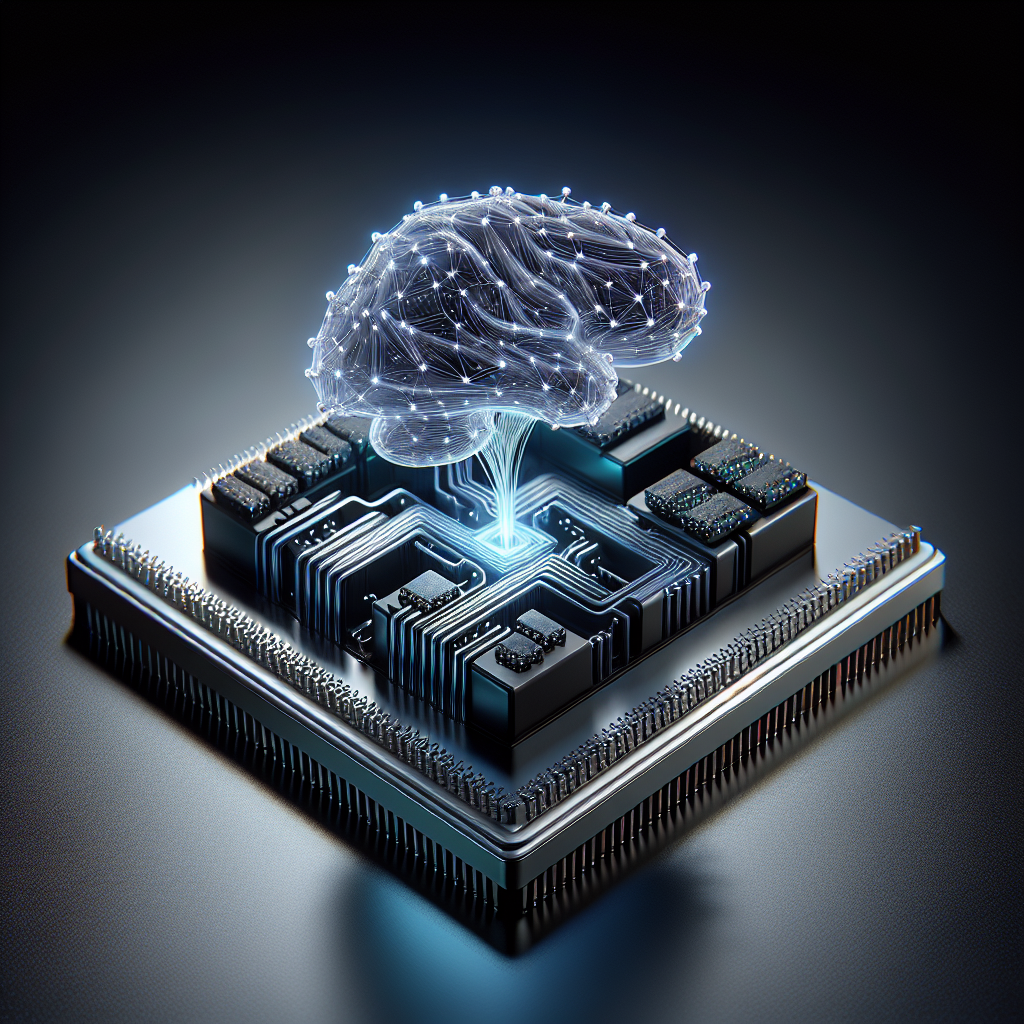People use a lot of electricity for computers, AI, and cryptocurrency. By 2026, they will need even more. Some companies want to make new kinds of computers that work like our brains. These brain-like computers could use less electricity and work faster. Big companies like Intel and IBM are trying to make these new computers.
These brain-like computers are different from regular ones. They put memory and processing together on one chip, saving energy. They only work when they need to, like our brains. There are still problems to fix, but people think these computers could change how we use AI. In the future, we might use regular, brain-like, and even quantum computers together.
Original news source: Could brain-like computers be a ‘competition killer’? (BBC)
🎧 Listen:
Slow
Normal
Fast
📖 Vocabulary:
| 1 | electricity | Power that makes lights and machines work |
| 2 | computers | Machines that can think and do tasks |
| 3 | cryptocurrency | Digital money you can’t touch |
| 4 | brain | The part of your head that thinks |
| 5 | memory | What you remember |
| 6 | processing | Doing tasks or actions |
| 7 | chip | A small piece inside a computer |
| 8 | energy | Power that makes things move or work |
| 9 | quantum | Very tiny particles that are smaller than atoms |
| 10 | future | The time that comes after now |
Group or Classroom Activities
Warm-up Activities:
– Charades
Instructions: Write down key words from the article on separate pieces of paper. Divide the class into small groups. One student from each group will pick a word and act it out without speaking. The rest of the group will try to guess the word based on the student’s actions.
– News Summary
Instructions: Divide the class into pairs. Each pair will take turns summarizing the article in their own words. They should try to include the main points and key details. After both partners have shared their summaries, they can compare and discuss any differences or similarities.
– Opinion Poll
Instructions: Create a list of statements related to the article, such as “Brain-like computers will replace regular computers in the future.” Have the students indicate whether they agree or disagree with each statement by raising their hands or standing in different parts of the room. After each statement, allow a few students to share their reasons for their opinions.
– Vocabulary Pictionary
Instructions: Write down key words from the article on separate pieces of paper. Divide the class into pairs. One student from each pair will pick a word and draw a picture to represent it, while the other student tries to guess the word. They can only communicate through their drawings.
– Think-Pair-Share
Instructions: Have the students think about and write down their answers to the question: “How do you think brain-like computers could change the way we use AI?” Then, pair the students up and have them share their answers with each other. Afterward, ask a few pairs to share their ideas with the whole class.
🤔 Comprehension Questions:
1. What are some things that people use a lot of electricity for?
2. What do some companies want to make that work like our brains?
3. How are brain-like computers different from regular computers?
4. What do brain-like computers do to save energy?
5. When do brain-like computers work?
6. Are there still problems with brain-like computers that need to be fixed?
7. How might we use regular, brain-like, and quantum computers together in the future?
Go to answers ⇩
🎧✍️ Listen and Fill in the Gaps:
People use a lot of (1)______ for (2)______, AI, and cryptocurrency. By 2026, they will need even more. Some companies want to make new kinds of computers that work like our (3)______. These brain-like computers could use less electricity and work faster. Big companies like Intel and IBM are trying to (4)______ these new computers.
These brain-like computers are (5)______ from regular ones. They put memory and processing together on one chip, saving energy. They only (6)______ when they need to, like our brains. There are still problems to fix, but (7)______ think these computers could change how we use AI. In the future, we might use regular, brain-like, and even (8)______ computers together.
Go to answers ⇩
💬 Discussion Questions:
Students can ask a partner these questions, or discuss them as a group.
1. What is electricity used for?
2. How do brain-like computers work?
3. Do you think brain-like computers are a good idea? Why or why not?
4. What problems do brain-like computers still have?
5. How do you think brain-like computers could change how we use AI?
6. What other types of computers might we use in the future?
7. Do you like using computers? Why or why not?
8. How would you feel if computers used less electricity and worked faster?
9. Do you think brain-like computers will be popular in the future? Why or why not?
10. What do you think about the idea of using regular, brain-like, and quantum computers together?
11. Have you ever used a brain-like computer? Why or why not?
12. How do you think computers have changed the world?
Individual Activities
📖💭 Vocabulary Meanings:
Match each word to its meaning.
Words:
1. electricity
2. computers
3. cryptocurrency
4. brain
5. memory
6. processing
7. chip
8. energy
9. quantum
10. future
Meanings:
(A) Digital money you can’t touch
(B) Machines that can think and do tasks
(C) Very tiny particles that are smaller than atoms
(D) The time that comes after now
(E) The part of your head that thinks
(F) What you remember
(G) Power that makes things move or work
(H) A small piece inside a computer
(I) Power that makes lights and machines work
(J) Doing tasks or actions
Go to answers ⇩
🔡 Multiple Choice Questions:
1. What are some things that people use a lot of electricity for?
(a) Cars, bicycles, and skateboards
(b) Apples, bananas, and oranges
(c) Computers, AI, and cryptocurrency
(d) Books, pencils, and paper
2. When will people need even more electricity for computers, AI, and cryptocurrency?
(a) By 2050
(b) By 2030
(c) By 2020
(d) By 2026
3. What do some companies want to make that work like our brains?
(a) New kinds of cars
(b) New kinds of houses
(c) New kinds of animals
(d) New kinds of computers
4. Which big companies are trying to make these new computers?
(a) Nike and Adidas
(b) Intel and IBM
(c) Coca-Cola and Pepsi
(d) McDonald’s and Burger King
5. How are brain-like computers different from regular ones?
(a) They put memory and processing together on one chip
(b) They have wheels and can fly
(c) They are made of chocolate
(d) They are very big and heavy
6. When do brain-like computers only work?
(a) All the time, even when they don’t need to
(b) Only on weekends
(c) When they need to, like our brains
(d) Only during the night
7. What do people think these computers could change?
(a) How we eat pizza
(b) How we use AI
(c) How we play soccer
(d) How we watch movies
8. In the future, what kinds of computers might we use together?
(a) Regular, brain-like, and even quantum computers
(b) Regular, brain-like, and even bicycle computers
(c) Regular, brain-like, and even pizza computers
(d) Regular, brain-like, and even dinosaur computers
Go to answers ⇩
🕵️ True or False Questions:
1. Some companies want to make new kinds of computers that work like our brains.
2. These brain-like computers could use less electricity and work faster.
3. In the future, we might not use regular, brain-like, and even quantum computers together.
4. They always work, unlike our brains.
5. There are still problems to fix, but people think these computers could change how we use AI.
6. Big companies like Intel and IBM are trying to make these new computers.
7. These heart-like computers separate memory and processing on different chips, wasting energy.
8. People conserve a lot of electricity for computers, AI, and cryptocurrency.
Go to answers ⇩
📝 Write a Summary:
Write a summary of this news article in two sentences.
Check your writing now with the best free AI for English writing!
Writing Questions:
Answer the following questions. Write as much as you can for each answer.
Check your answers with our free English writing assistant!
1. What do people use a lot of electricity for?
2. What do some companies want to make?
3. How are brain-like computers different from regular computers?
4. What do brain-like computers do when they don’t need to work?
5. How might we use regular, brain-like, and quantum computers together in the future?
✅ Answers
🤔✅ Comprehension Question Answers:
1. What are some things that people use a lot of electricity for?
People use a lot of electricity for computers, AI, and cryptocurrency.
2. What do some companies want to make that work like our brains?
Some companies want to make new kinds of computers that work like our brains.
3. How are brain-like computers different from regular computers?
Brain-like computers put memory and processing together on one chip, which helps save energy.
4. What do brain-like computers do to save energy?
Brain-like computers only work when they need to, just like our brains.
5. When do brain-like computers work?
Brain-like computers work only when they need to.
6. Are there still problems with brain-like computers that need to be fixed?
Yes, there are still problems with brain-like computers that need to be fixed.
7. How might we use regular, brain-like, and quantum computers together in the future?
In the future, we might use regular, brain-like, and quantum computers together to do different tasks and solve different problems.
Go back to questions ⇧
🎧✍️✅ Listen and Fill in the Gaps Answers:
(1) electricity
(2) computers
(3) brains
(4) make
(5) different
(6) work
(7) people
(8) quantum
Go back to questions ⇧
📖💭✅ Vocabulary Meanings Answers:
1. electricity
Answer: (I) Power that makes lights and machines work
2. computers
Answer: (B) Machines that can think and do tasks
3. cryptocurrency
Answer: (A) Digital money you can’t touch
4. brain
Answer: (E) The part of your head that thinks
5. memory
Answer: (F) What you remember
6. processing
Answer: (J) Doing tasks or actions
7. chip
Answer: (H) A small piece inside a computer
8. energy
Answer: (G) Power that makes things move or work
9. quantum
Answer: (C) Very tiny particles that are smaller than atoms
10. future
Answer: (D) The time that comes after now
Go back to questions ⇧
🔡✅ Multiple Choice Answers:
1. What are some things that people use a lot of electricity for?
Answer: (c) Computers, AI, and cryptocurrency
2. When will people need even more electricity for computers, AI, and cryptocurrency?
Answer: (d) By 2026
3. What do some companies want to make that work like our brains?
Answer: (d) New kinds of computers
4. Which big companies are trying to make these new computers?
Answer: (b) Intel and IBM
5. How are brain-like computers different from regular ones?
Answer: (a) They put memory and processing together on one chip
6. When do brain-like computers only work?
Answer: (c) When they need to, like our brains
7. What do people think these computers could change?
Answer: (b) How we use AI
8. In the future, what kinds of computers might we use together?
Answer: (a) Regular, brain-like, and even quantum computers
Go back to questions ⇧
🕵️✅ True or False Answers:
1. Some companies want to make new kinds of computers that work like our brains. (Answer: True)
2. These brain-like computers could use less electricity and work faster. (Answer: True)
3. In the future, we might not use regular, brain-like, and even quantum computers together. (Answer: False)
4. They always work, unlike our brains. (Answer: False)
5. There are still problems to fix, but people think these computers could change how we use AI. (Answer: True)
6. Big companies like Intel and IBM are trying to make these new computers. (Answer: True)
7. These heart-like computers separate memory and processing on different chips, wasting energy. (Answer: False)
8. People conserve a lot of electricity for computers, AI, and cryptocurrency. (Answer: False)
Go back to questions ⇧














